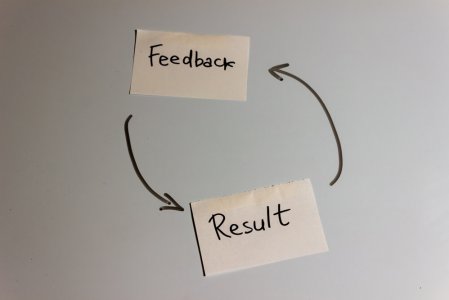Australia’s National Health and Medical Research Council (NHMRC) has released its ME/CFS Advisory Committee’s draft report for public consultation. The public consultation process will remain open until Monday February 18, 2019. The public consultation process is open to anyone anywhere in the world, and we hope that many people outside Australia will read the report and provide feedback to the committee.
You can read the full report and provide feedback to the committee here. Following the public consultation, the committee will receive a summary of all feedback for discussion at its next meeting.
Background
NHMRC established the ME/CFS Advisory Committee in late 2017 in response to a proposal for a Targeted Call for Research (TCR) from ME/CFS Australia (SA). Whilst the TCR was not funded at that time, NHMRC recognised the need for greater attention to be given to ME/CFS.
The terms of reference of the committee were to advise the Chief Executive Officer of NHMRC on:
- Status of national and international research into ME/CFS
- Gaps in research on ME/CFS. This will include but not be limited to research on the immunology, psychology, microbiology and virology of the conditions, as well as any health services research.
- Status of clinical guidance on ME/CFS available to doctors and health professionals
- Requirements and opportunities for improved clinical guidance
- Any other issue on ME/CFS that the NHMRC Chief Executive Officer may request.
The committee members included two people with ME/CFS: Simone Eyssens and Penelope McMillan. President of Emerge Australia, Sally Missing, also attended meetings to provide Simone with support.
You can read more about the committee, including a summary of meetings, here.
Key Recommendations
Summary of Committee’s Recommendations for Consideration by NHMRC and the Australian Health Portfolio
Strategic focus 1: Research quantity and capacity building
Objectives
• Encourage hypothesis-generating research.
• Support new and emerging researchers into the field of ME/CFS.
• Encourage research translation and community collaboration.
• Encourage collaborative funding initiatives and minimise duplication of research efforts both nationally and internationally.
Recommendations:
• Conduct a targeted call for research (TCR) on ME/CFS pathophysiology.
• Establish an Australian ME/CFS collaborative research consortium for ME/CFS.
• For consistency in Australian research, adopt the 2003 Canadian Consensus Criteria (CCC) and the Paediatric Primer (2017) for child and adolescent patient selection and collect common data elements (CDEs).
Strategic focus 2: Health services research
Objectives:
• Report the Australian burden of disease including:
– DALYs to inform policy recommendations
– child and adolescent impact
– impact of caring roles for carers of people with ME/CFS
– clarify health disparities.
• Describe the economic impact of ME/CFS on the Australian economy.
• Increase awareness of ME/CFS to help inform policy on economic and social support service accessibility.
• Highlight funding and research opportunities in health services research fields.
Recommendations:
• Undertake health economics analyses.
• Highlight research opportunities in models of care and service delivery.
Strategic focus 3: Developing health advice
Objectives:
• Provide clinicians with ME/CFS health care resources including clinical guidelines based on the latest research evidence.
• Develop a clinical pathway within clinical guidelines for ME/CFS management and effective patient support.
• Collaborate nationally in the dissemination and implementation of clinical resources, including the education of clinicians.
Recommendations:
• Update and maximise the uptake of Australian ME/CFS clinical practice guidelines.
Additional Committee Recommendations
• Develop Australian capacity through international collaboration.
• Establish an Australian collaborative biobank.
• Raise with Australian Institute of Health and Welfare for increased collection of prevalence data and burden of disease reporting.
Suggestions for feedback
• The feedback form allows you to save your progress and return at a later date, so you can write your response at your own pace.
• The feedback form asks specific questions and each field has a 300 word limit. Plan your responses. Perhaps consider writing your response offline and pasting them into the form when you’re happy with them.
• The feedback being sought is about the report itself. There isn’t scope to provide personal experiences of the illness, or topics outside the scope of the report. Personal comments about particular members of the committee are also outside the scope of the feedback process.
• Provide feedback on what you like about the report. This will help lend weight to those parts of the report which are important to you. NHMRC is seeking feedback on the report from a wide variety of sources, not all of which will agree with patients’ views. Hearing strong feedback about positive sections of the report, and sections which are valued, will be just as useful as hearing feedback on those sections which you feel could be improved
• Provide specific and constructive feedback about those parts of the report which you feel could be improved. Make it clear why your concerns are, and what you would like to see changed.
• If reading the whole report is too much, consider providing feedback on the summary recommendations shown above.
• Don’t focus on providing references. The report is based on almost 12 months of work by the committee. Many research studies have been discussed or shared amongst committee members. The references list in the report, which doesn’t include all studies raised, has more than 75 papers. Chances are that the committee will have seen the study that you are considering sending. Instead, use your word limit to provide your views on the report. If you do wish to include references, we suggest simply including the lead author and year of publication (eg: Smith, 2017), to minimise the words used.






1 thought on “Comment on Australia’s National Draft Report on ME/CFS – Open to Global Feedback”
Thank you for this email.
So easy to understand.
With heart-warming possibilities.
I’ll have a go.
Even if it’s very short.
Love to all. A.
Comments are closed.